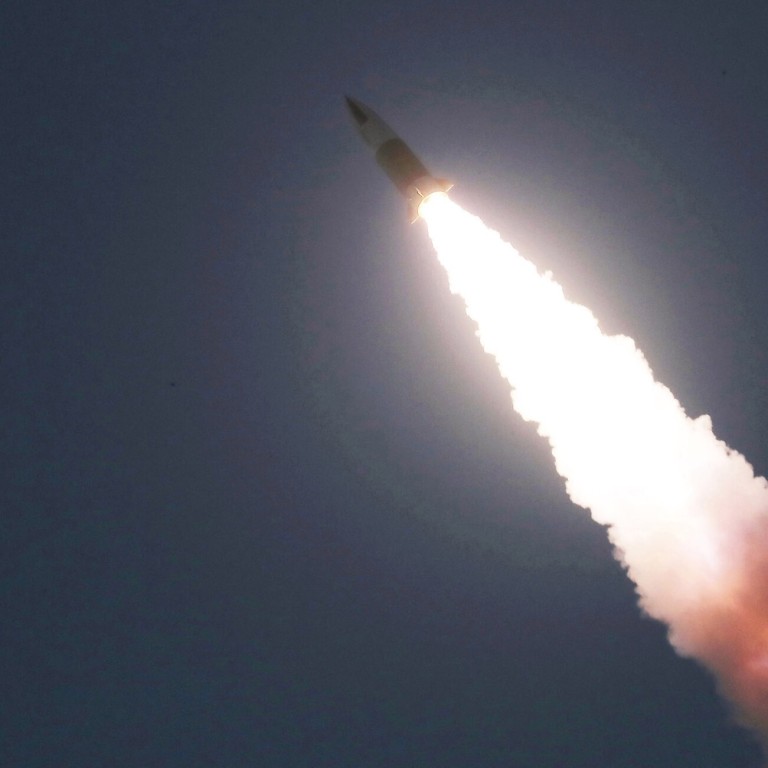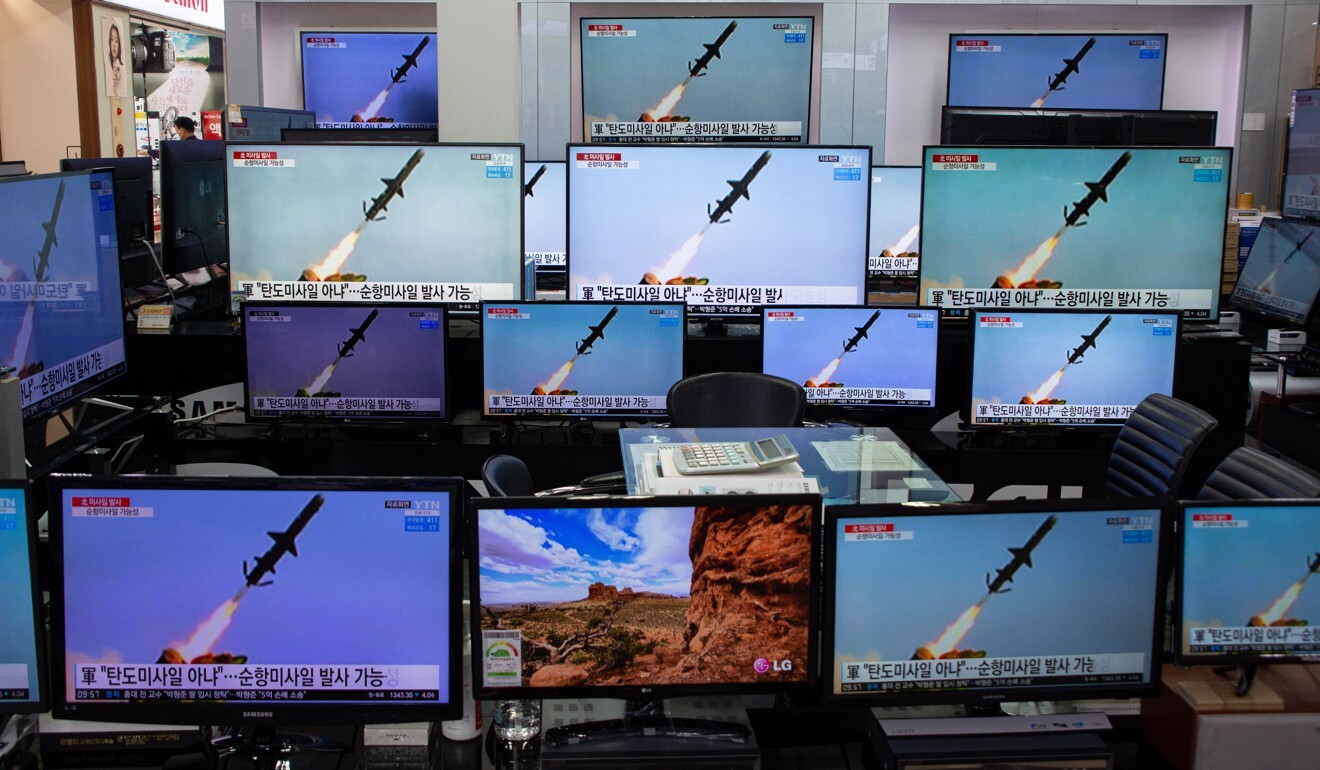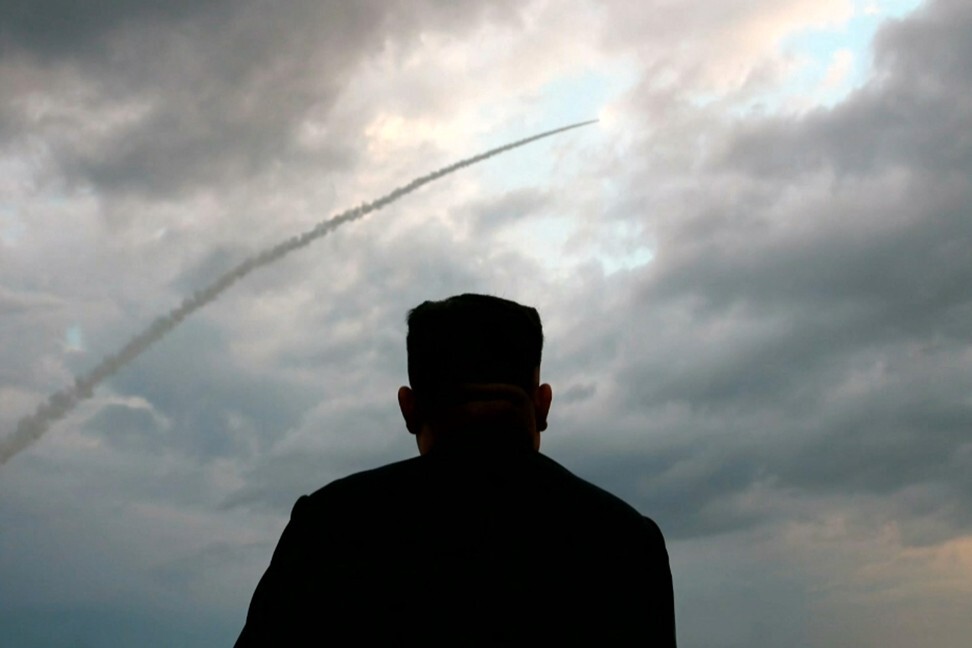
North Korea missile tests ‘aimed at US-South Korea defence ties’
- Pyongyang made a calculated move to show frustration but not provoke a backlash, observers say
- Launches also suggest North Korea is testing the waters with China
Senior US administration officials said on Tuesday that Pyongyang fired short-range missiles off North Korea’s western coast on Sunday.
They were initially described as ballistic weapons but that assessment was revised on Wednesday.
“The North test-fired what were believed to be two cruise missiles from Onchon county on Sunday morning. They were all short-range,” a Joint Chiefs of Staff military official in Seoul said.
Neither cruise missiles nor short-range missiles are covered by UN Security Council resolutions aimed at deterring North Korea from pursuing nuclear and ballistic weapons.

02:19
Kim Jong-un’s sister warns US not to ‘cause a stink’ with North Korea
China’s response was also muted.
“We urge all parties to continue dialogue and consultation, and work together to keep the situation calm,” foreign ministry spokeswoman Hua Chunying said in Beijing on Wednesday.
The United States and South Korea also held joint military exercises earlier this month, prompting threats from Kim Yo-jong, the sister of North Korean leader Kim Jong-un.
North Korea seeks to strengthen its ties to China, even as it ignores US
Analysts said the launches were low-level expressions of Pyongyang’s dissatisfaction with Washington, which is reportedly close to finalising a major review of its North Korea policy.
Professor Yang Moo-jin, from the University of North Korean Studies in Seoul, said the tests coincided with the North Korean military’s annual winter exercises, held between January and April.

“This is a low-level provocative act that came on the heels of the US-South Korea joint military drills,” Yang said. “However, we have to wait and see whether this is a one-off action conducted during the military exercise or [is followed by] higher-level provocative acts.”
Li Jiacheng, a research fellow with the Charhar Institute, a foreign policy think tank in the Chinese province of Hebei, agreed that the missile launches were a calculated protest aimed at the US.
“It’s a direct response to the US-South Korea joint military exercise and can be seen as concrete implementation of Kim Yo-jong’s warning against the US not to ‘cause a stink’,” Li said.
US-China tensions give North Korea an opportunity to strengthen its position in nuclear talks
Wu Xiangning, an assistant professor of public policy at the University of Macau, said the timing of the tests so soon after Blinken’s meetings in Alaska with top Chinese officials last week indicated that Pyongyang was taking the temperature of China and the US in relation to the Korean peninsula.
“After the bilateral dialogue in Alaska, Pyongyang wants to know whether China will coordinate with the US in squeezing North Korea, and whether China and the US are more willing to cooperate rather than to argue over North Korea issues,” Wu said.
Bi Yingda, a research fellow at Institute for Korean Peninsula Studies at Shandong University, said Pyongyang’s decision to fire cruise missiles instead of ballistic ones was not unexpected.

“I think many countries expected Pyongyang to launch cruise missiles,” Bi said.
“The United States’ policy toward North Korea is still unclear, and North Korea has been defined as a threat. In addition, South Korea-US joint military exercises have begun again ... so North Korea decided to respond, but it was moderate.”
North Korea has been subjected to United Nations sanctions since 2006 over its nuclear and ballistic missile programmes, including the development of the Hwasong-15, which has the potential to hit the continental United States.
In January, North Korea unveiled a new type of submarine-launched ballistic missile at a military showcase, which it declared to be “the world’s most powerful weapon”.
Additional reporting by Park Chan-kyong


